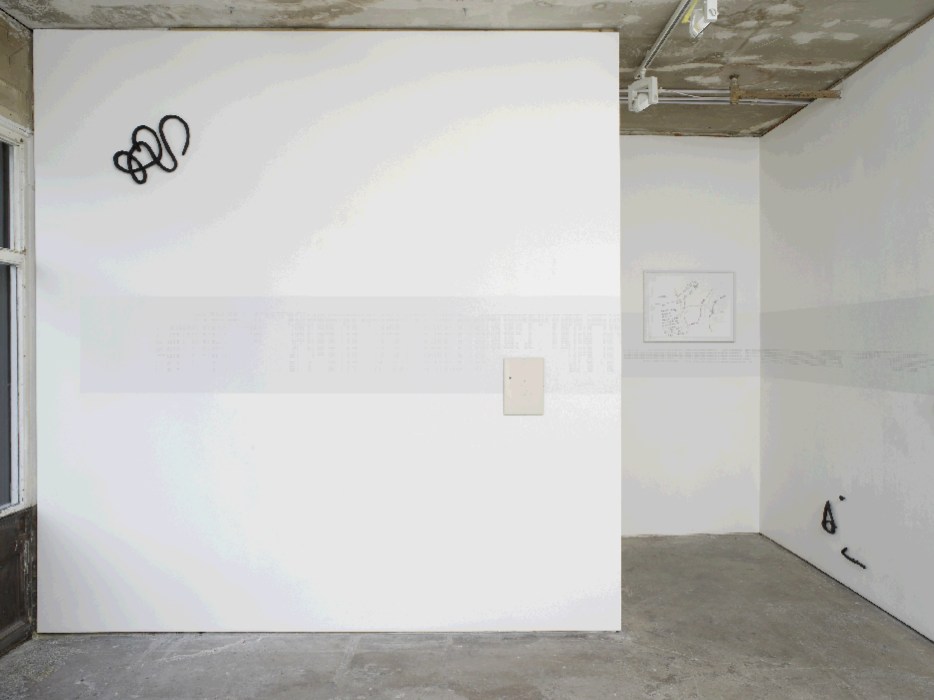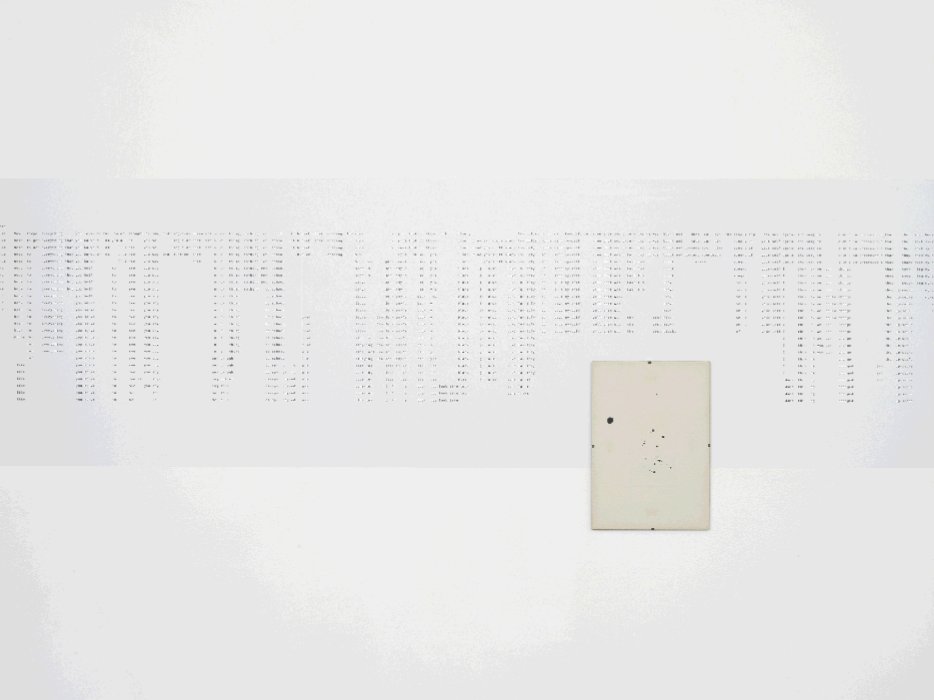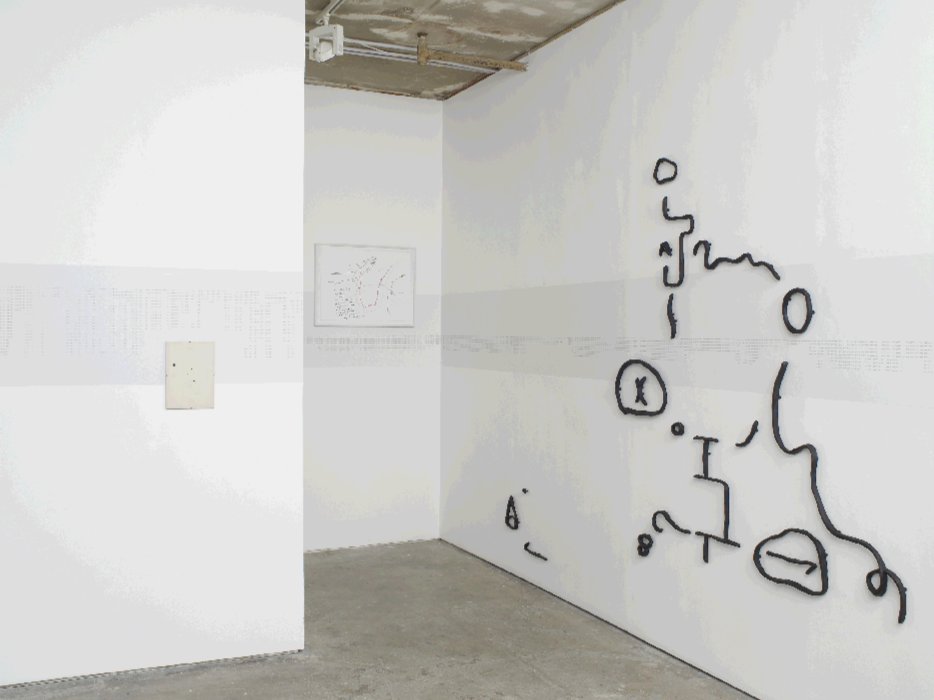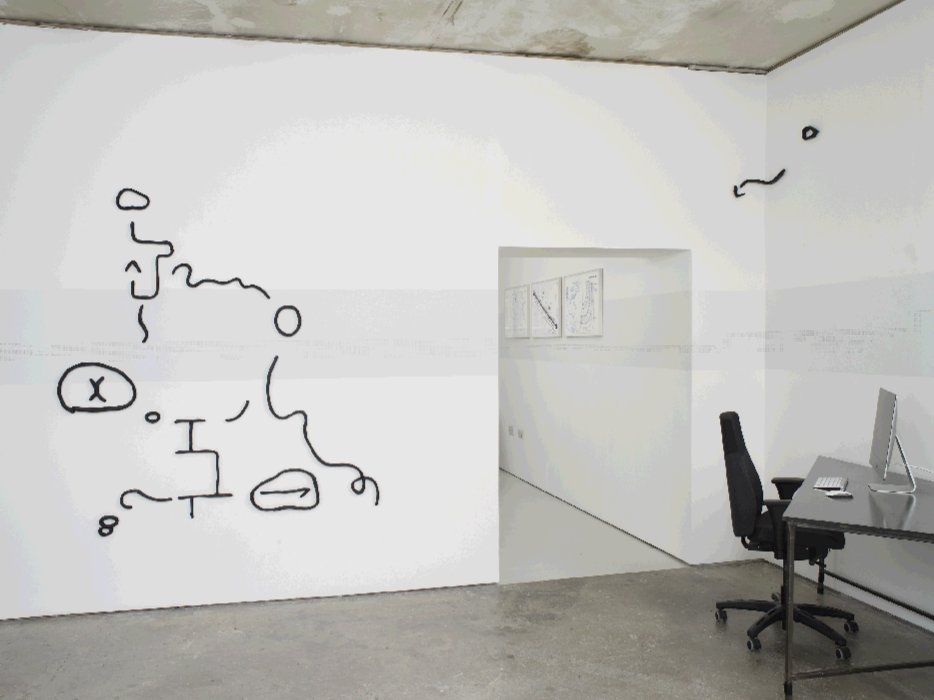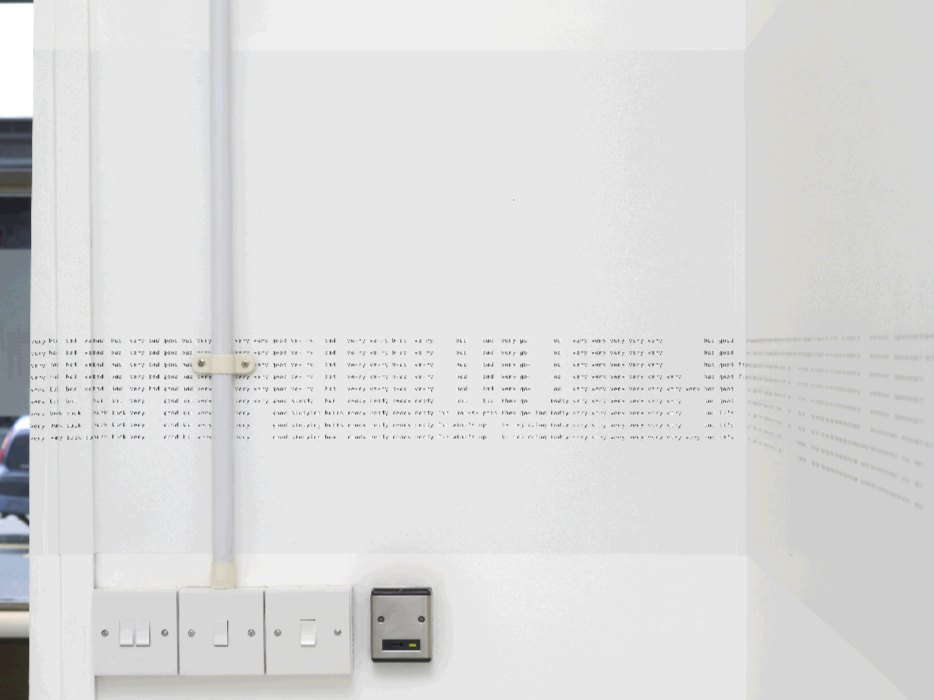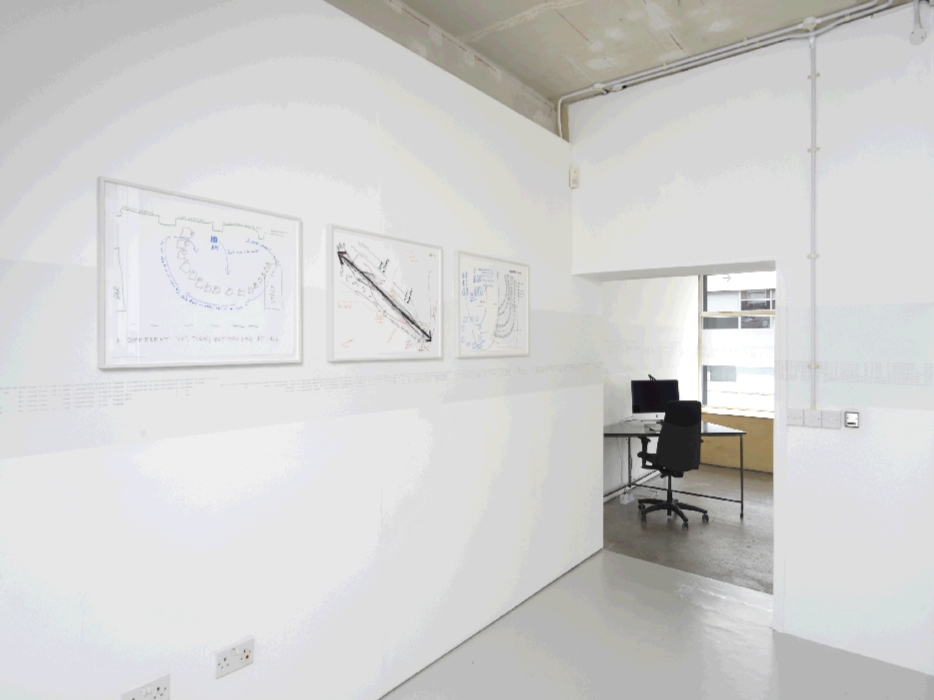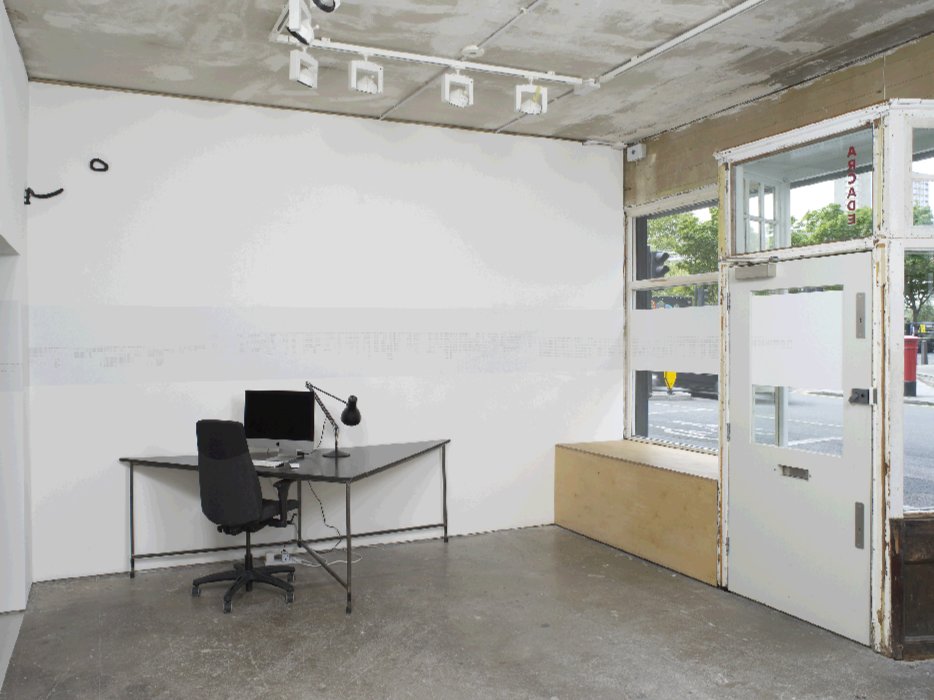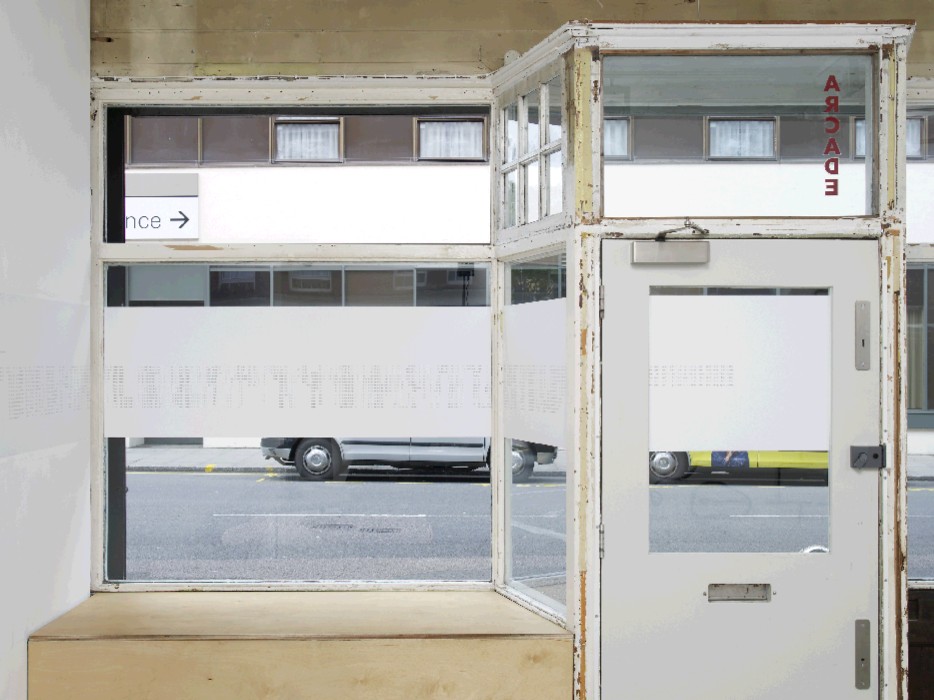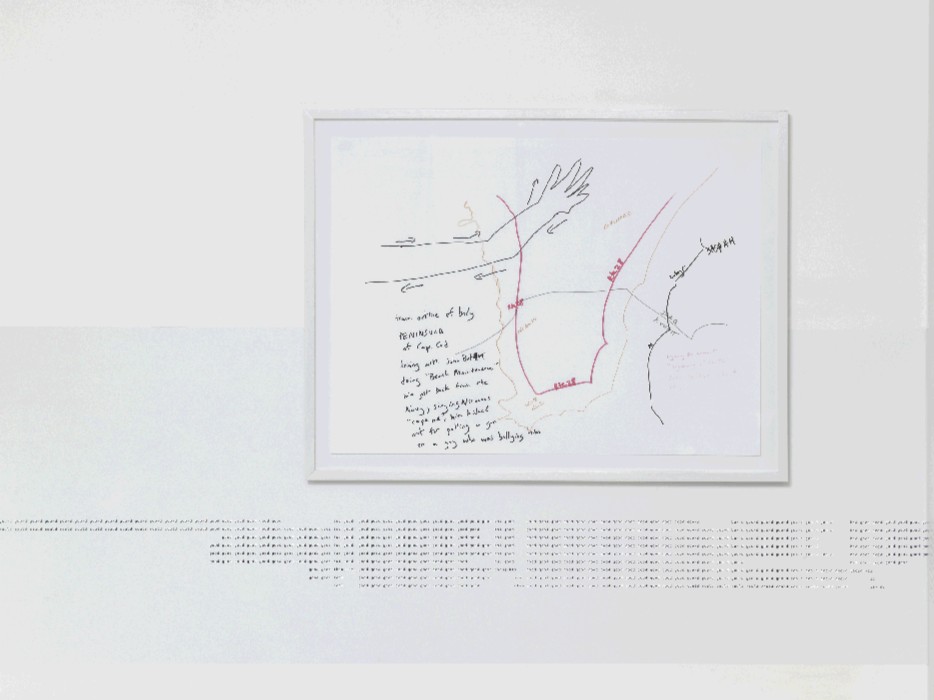EVEN DUST CAN BURST INTO FLAMES
Arcade, London, 10.05 - 03.06.17
Anna Barham, Kit Craig, Jeremiah Day & John Latham
curated by Anna Barham
In the case of artworks, reification is more than mere transformation; it is transfiguration, a veritable metamorphosis in which it is as though the course of nature which wills that all fire burn to ashes is reverted and even dust can burst into flames… Hannah Arendt
The works in the show oscillate between the events they materialise and the interpretations they point toward – between past and future. In John Latham and Kit Craig’s works, the event is simple and private: a one second spray of ink on paper or a finger pulling through wet clay. Echoing the first human methods of producing a mark they are indexical; direct results of the process of their production, embodying the history of their own making. But then…
In Latham’s ‘One Second Drawings’ dots of ink on the surface of the paper give the impression of deep spatial recession as scale telescopes in a viewer’s imagination and cosmoses appear. Latham saw the first spot of pigment as exemplifying a microscopic occurrence or a ‘least event’, while the containing canvas represented the macrocosmic context within which all such events take place: these simple pieces demonstrating his theories of event structure with deceptive economy.
This diagrammatic approach which links material and ideas is foregrounded and reversed in Kit Craig’s bronze casts of simple gestures – drawings trying to become sculptures. The dumb marks recall thought processes, touch screens and cartoon outlines, referring away from themselves, as intermediaries to explain something else. But cast into bronze, each one has a tangibly solid, haptic quality which shifts attention away from it as a signifier of something else towards being a thing in its own right.
Jeremiah Day’s framed drawings and Anna Barham’s text pasted to the wall are, in different ways, records of public events. Day’s improvisations grow out of movement-language-image pictures which unfold in the duration of public performance. The drawings come from a subsequent honing of these ‘pictures’ and serve as a better registration of the performances than any video or audio record. Rather than conveying the absence of the past event they insist on future potential, activating the viewer to pull the elements of image, language and gesture together in their mind, much as they would during the live performance itself.
Barham’s score We may be ready for verbal intercourse charts the material generated in a live production reading group held at Flat Time House, London, John Latham's London home and studio, which drew on several of his writings. It reveals traces of the mutations of a specific text event, particular renderings of the surface affects of language as the texts are given breath by the participants. Dissected, analysed and plotted it transforms this material into something to be encountered anew, to be reinterpreted again by the movement of a viewer in front of them, to be read vertically or horizontally, forwards or backwards.
– Anna Barham, April 2017
